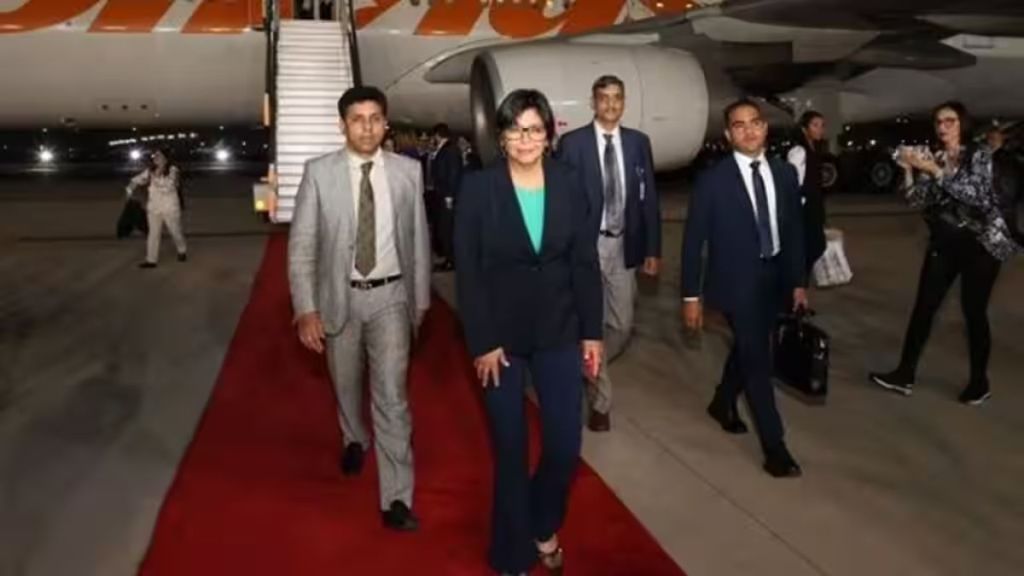The recent easing of sanctions against Venezuela by the United States has triggered a complex geopolitical scenario that has significant implications for India’s energy security. As the global landscape evolves, the Indian government is navigating its energy strategy with caution, ensuring that the nation’s energy needs are met while safeguarding its interests.
Understanding the Sanctions Easing
The United States has approved transactions related to Venezuela’s oil, gas, and gold mining sectors, signaling a partial easing of sanctions. However, it is essential to note that these sanctions do not extend to the frozen assets of Venezuela and the state-owned oil company, CITGO. This nuanced approach by the US administration highlights its strategy to use sanctions as a diplomatic lever, emphasizing the potential reversibility of the easing in case Venezuela fails to meet its commitments, particularly regarding democratic elections.
India’s Energy Security Priorities
The official spokesperson of India’s Ministry of External Affairs, Arindam Bagchi, on Thursday during the weekly briefing addressed India’s stance on the Venezuela situation. He underscored that India’s decisions are primarily guided by its energy security requirements.
“In line with this, India aims to diversify its energy sources, with a particular focus on oil, to benefit its population,” explained a top diplomat.
Regarding pending payments to India that are held up in Venezuela, Bagchi emphasized that discussions will be initiated once there is significant movement on the ground. It’s noteworthy that a portion of these negotiations involve private sector entities and traders. The overarching framework that guides India’s approach remains the imperative of ensuring energy security.
The Barbados Agreement
An agreement signed in Barbados on Tuesday between the government of President Nicolás Maduro and the main opposition leaders has garnered international support. The European Union, the United States, Brazil, and Argentina, among others, have welcomed this development. This agreement paves the way for those who have been disenfranchised and opposition political parties to regain their rights. International observers will be invited to monitor the 2024 presidential elections, scheduled for the second half of that year.
The negotiation process, represented by Assembly Speaker Jorge Rodríguez and Gerardo Blyde, signifies the first step in a lengthy two-year negotiation journey that commenced in Mexico. Blyde articulated that this agreement is a pivotal moment that will contribute to restoring confidence in the electoral process. It guarantees the integrity of the internal selection process of candidates and outlines a route for disenfranchised individuals and political parties to regain their rights.
The agreement also commits to qualified electoral observation from international entities, such as the European Union, the Carter Center, and the United Nations. Furthermore, it sets an electoral schedule for the 2024 presidential elections and includes provisions for media access and freedom of expression.
Maintaining a Pragmatic Approach
According to a top diplomat India is carefully observing these developments in Venezuela. As the international community welcomes the Barbados Agreement, India is cognizant of the potential impact on its energy security. “The easing of sanctions in Venezuela could open up new avenues for oil transactions, benefiting India’s energy needs. However, it’s essential to maintain a pragmatic approach and monitor the situation closely,” the diplomat added.
The United States has also responded to these democratic developments by temporarily suspending certain sanctions. General licenses have been issued to facilitate transactions involving Venezuela’s oil and gas sector and gold sector. The Treasury Department’s willingness to amend or revoke authorizations if commitments are not met underscores the diplomatic fluidity surrounding Venezuela.
In conclusion, India is steadfast in its commitment to ensuring energy security for its citizens. As global dynamics evolve, India’s diplomatic and economic strategies will continue to adapt to meet the nation’s energy needs. The Venezuela situation, as exemplified by the Barbados Agreement, presents both challenges and opportunities, and India will navigate this complex landscape with prudence and foresight.


